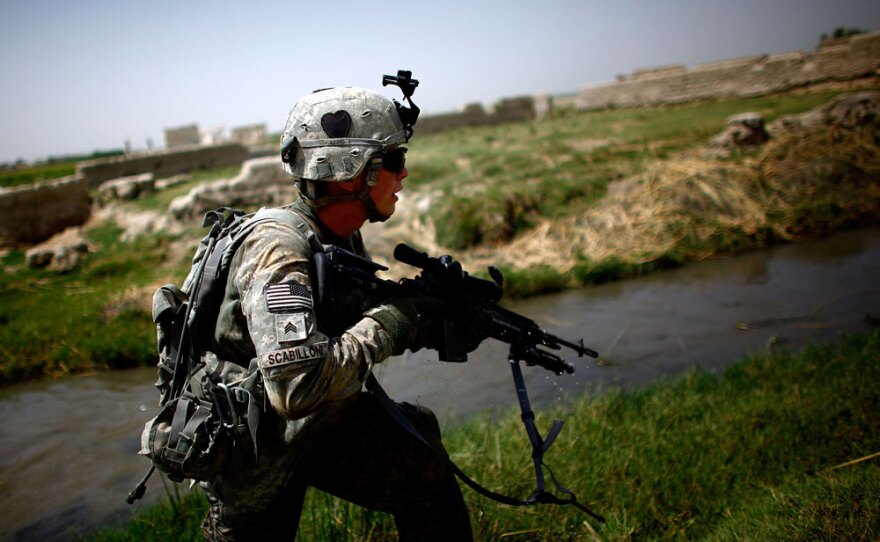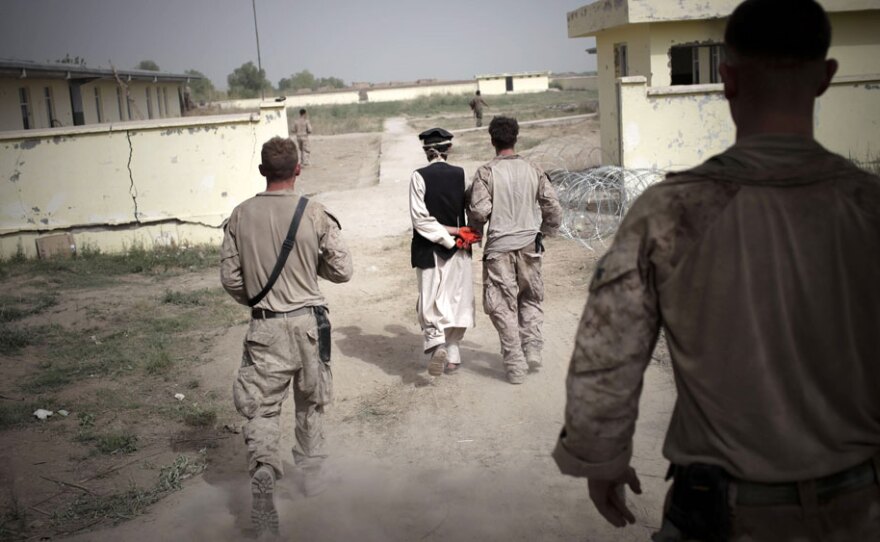The Obama administration faces a new challenge in its defense of the U.S. war effort in Afghanistan: more than 90,000 military intelligence reports, leaked by the group that calls itself WikiLeaks. The secret documents, which date from 2004, tell a story of the daunting problems facing U.S. forces in Afghanistan.
Some of the reports detail ways the Pakistani intelligence service has supported the Taliban insurgency.
The documents were clearly provided to WikiLeaks by someone in the U.S. military. They include thousands of raw intelligence reports from collectors in the field, observations from U.S. troops on patrol, so-called "after-action" reports, and accounts from informants -- no analysis, no editing, just raw material.

Assessing The Documents
Retired Army Col. Peter Mansoor served as executive officer to Gen. David Petraeus in Iraq, where he saw a mountain of reports like these.
"They would be fed into the operations and intelligence fusion centers, where they would be digested," Mansoor says.
On rare occasions, such reports would be seen by a top commander.
"Someone at a very high level would have access to everything that's been collected in the war effort, if they're willing to spend the time to wade through that mass of data," he says.
One reason few commanders bother is that they can never be confident of the accuracy of reports such as these. Anthony Cordesman of the Center for Strategic and International Studies cautions that the secret documents released by WikiLeaks should be put in this context.
"The mere fact that something is classified doesn't mean that it doesn't include rumors, unverified reports, things written in the heat of action," Cordesman says.
What these documents do provide is a soldier's-eye view of the Afghanistan war: the threat reports that come in daily about the Taliban; accounts of corruption; most alarmingly, accounts of how Pakistan's intelligence service has provided advice to Taliban commanders, even to the point of helping them plan suicide attacks.
White House Response
White House press secretary Robert Gibbs was forced to remind reporters Monday that the administration has already publicly complained to Pakistan about its alleged support for the Taliban.
The mere fact that something is classified doesn't mean that it doesn't include rumors, unverified reports, things written in the heat of action.
"I am not going to stand here on July 26 and tell you that all is well. I will tell you that we have made progress in moving this relationship forward, in having the Pakistanis address the issue of safe havens, the issue of extremists operating in that country," Gibbs says.
White House officials point out that the founder of WikiLeaks, Julian Assange, is known for his opposition to the war in Afghanistan. In a press conference in London Monday, Assange even suggested that the documents he published may show that U.S. forces in Afghanistan have committed war crimes.
"It is up to a court to decide, clearly, whether something is, in the end, a crime. That said, there does appear to be evidence of war crimes in this material," he said.
He cited a report of a U.S. commando raid that left women and children dead. But U.S. officials scoff at the war crimes charge.
Impact Of War's Future Path
The biggest news may be a report that the Taliban shot down a U.S. military helicopter with a portable, heat-seeking, anti-aircraft missile -- a report that U.S. officials have never acknowledged.
The most likely source would be U.S. Stinger missiles left over from those provided 25 years ago to Afghan forces fighting Soviet troops. But only a few hundred are unaccounted for and experts say they probably no longer work.
Cordesman of the Center for Strategic and International Studies says it's possible the Taliban have recently received some Chinese or Russian missiles, but he is doubtful.
"We don't have any evidence of those systems being transferred, and none is in these reports," he says.
Still, the leaked reports cannot help the Obama administration make its case that the war in Afghanistan is winnable. There is just too much evidence of how often U.S. intelligence officers are discouraged by what they see and hear.
Copyright 2022 NPR. To see more, visit https://www.npr.org. 9(MDAzMjM2NDYzMDEyMzc1Njk5NjAxNzY3OQ001))







